So much of the woodland garden is green. While shade gardeners appreciate verdant mounds of moss, swaths of sweet box and colonies of camellias, some color relief is a welcome respite from the norm. The Japanese painted fern (
Athyrium niponicum var.
pictum)
gives us just that, sporting a beautiful display of gray and burgundy foliage with hints of subtle green. It is like that little black dress, bringing elegance and an element of surprise to the table, standing out among the crowd. Dress up your shade garden with this fern. You won’t be sorry.
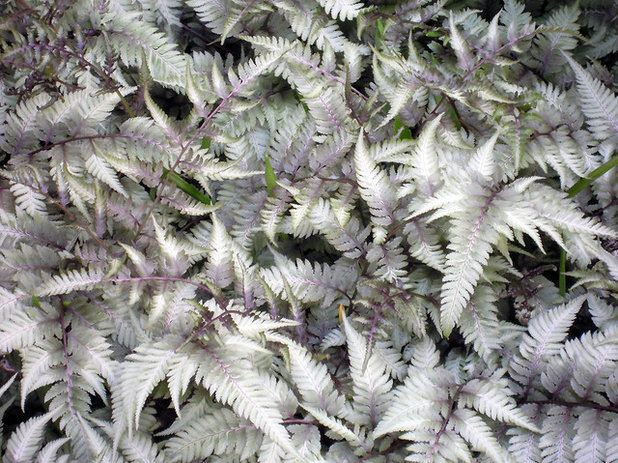 Botanical name: Athyrium niponicum
Botanical name: Athyrium niponicum var.
pictumCommon name: Japanese painted fern
Origin: Eastern Asia
Where will it grow: Hardy to -40 degrees Fahrenheit (USDA zones 3 to 8; find your zone)
Water requirement: Consistent moisture is best for optimum growth
Light requirement: Partial to full shade; can tolerate more sun in moist soil
Mature size: 1½ feet tall and 2½ feet wide
Benefits and tolerances: This fern is deer and rabbit resistant, which is becoming more important in certain areas; it has few if any insect or disease problems; it tolerates heavy shade, partial sun if kept consistently moist, and wet feet
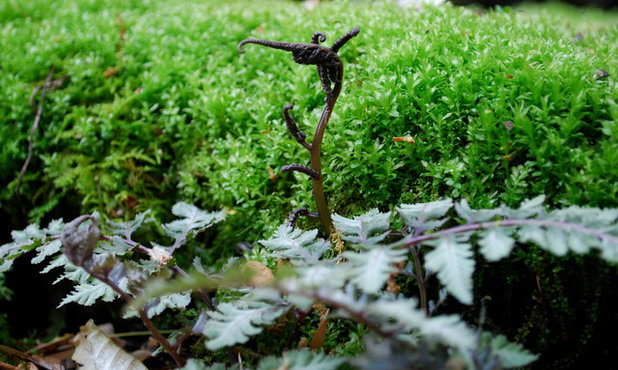
Jay Sifford Garden Design
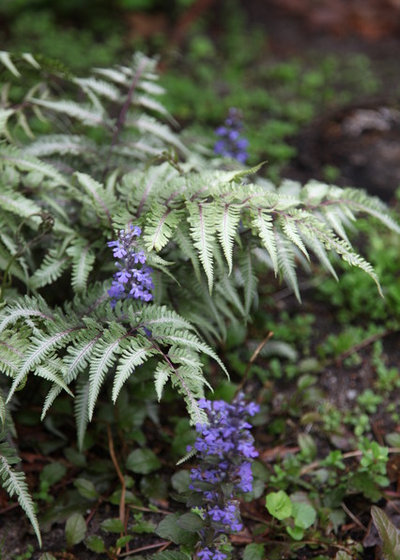
Whitmores Landscaping
Seasonal interest: Japanese painted fern sends up fronds almost overnight in midspring. It frequently takes on the form of caricatures, with interpretation left up to the imaginative gardener. By midsummer, when many ferns are looking tired, this fern holds its own with style.
When to plant: This fern is best planted in spring and fall.
Distinguishing traits. This fern’s coloration is what sets it apart from all others. Its sultry blend of silver-gray with welcome burgundy notes is an attention getter.
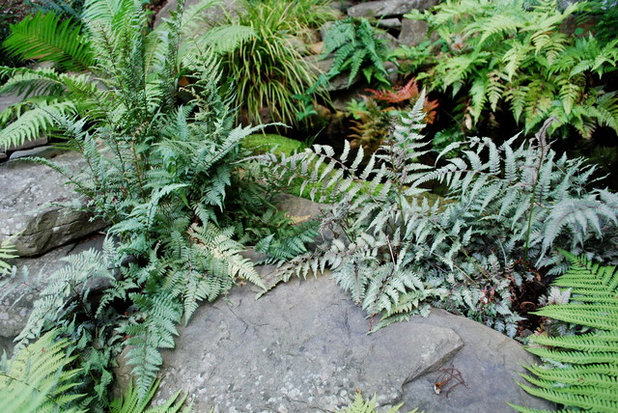
Jay Sifford Garden Design
How to use it. With its compact size, great texture and unique coloration, this fern can be used to bridge the gap between woodland hardscape and planting schemes. I enjoy pairing it with granite boulders, as it creates a useful juxtaposition in the garden. Similarly, it is beautiful creeping over edging and onto a gray gravel path. This fern is also an appropriate accent at the base of a stainless steel sculpture.
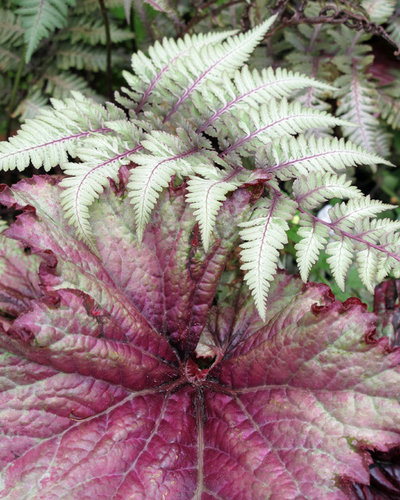
Susan Cohan, APLD
Japanese painted fern is at its best when paired with pink or burgundy accents, such as are highlighted in this
rex begonia (
Begonia rex-cultorum,
zones 10 to 11). Other worthy companion plants include
strawberry begonia (
Saxifraga stolonifera, zones 6 to 9) and
Chinese fringe bush (
Loropetalum chinense, zones 7 to 9).
Use multiple plants if you’re planting it in a predominantly green border so that it doesn’t become lost in the crowd. A lone painted fern in a sea of green is a sad sight.
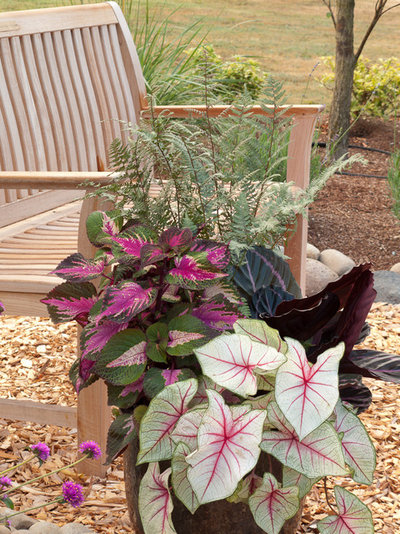
Le jardinet
This painted fern is also useful in seasonal pot displays. Here it is beautifully paired with
beefsteak plant (
Perilla frutescens ‘Magilla’, zone 11) and
caladium (
Caladium bicolor, zones
9 to 11)
. The secret is to use this fern to subtly reinforce the foliage color of its neighbors while using its foliage to best advantage to create contrast.
Planting notes. Plant it in moist soil with plenty of organic matter added in the form of mushroom compost or composted manure.
More: Ferns: A Shade Gardener’s Best Friend
Browse more plants with striking foliage





